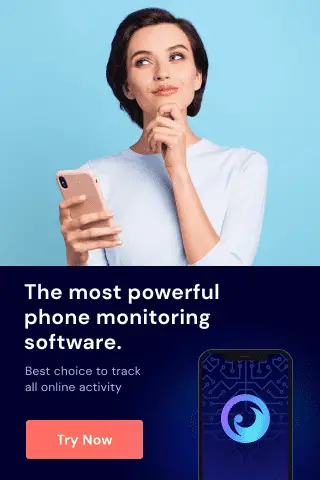Protecting Our Children in the New World of Technology
11 min read by Bogdi
published 4 years ago, updated 4 years ago
In this article, we're talking about the most important "thing" in the world for us, our children. We will approach a few wide & deep questions that lurk in the shadows every day.
How is this "new world" going to affect them? Is it positive or negative? Is it going to help them achieve the happiness, fulfillment, and overall well-being that we're daily trying to guide them towards? Or is it going to work against our highest hopes?
Placing the nuanced answers aside, for now, we can be 100% sure that it's a totally different world than that in which we grew up. The speed at which Technology and the status quo change it's unprecedented.
Because of that, it seems that we live in different worlds compared to our children, and it's getting harder and harder to connect and communicate with them as we once did.
In contrast, our parents always have simple advice on how to solve the challenges in their development. Still, it was much easier for them from this perspective because our childhood experiences were very similar to theirs. It was easier for them to identify stages, their implications, and how to guide us through them.
However, we're dealing with challenges that would have been perceived as Science Fiction for them 25 years ago. They are a reality for us now, and we need to adjust to them.
By the end of this article, you will find solutions that will forever change your ability to deal with this strange new world. We were thrilled to find answers that solved both our most intense worries and those we didn't even dare to visualize.
But before that, let's explore the challenges in front of us.
The overuse of Technology
The "Parallel Universe Experience" problem
We can all feel that they are spending too much time online, but are we right to think so? The global latest study showed that the daily average for children between 8 and 18 is 7.5 hours beside school or study-related technology usage.
Please re-process that information again. 7.5 hours of content consumption (videos, games, social media, etc.). This forces us to ask a few questions; who is educating our children? are we as parents doing that? Is it the school system? Or is it the internet? And if the latter is the answer, is that a bad thing?
Not necessarily; that's why we let them use it as much as they do. We're offering our children the freedom to explore, learn and connect with the world they will live in. That isn't wrong. There are tons of studies showing how this helps them develop at the cognitive level. However, it has downsides as well.
Think of YouTube as an example. That's among the most revolutionary platforms for the democratization of learning. However, it's also where you can find the most stupid content on the planet.
And yes, we can see what they are watching (if we're lucky and they don't use "incognito mode"). Still, we're not precisely watching all that content to see if it's polluting their minds or not, are we?
And that's a good case because if we talk about TikTok, that's an uncontrollable cognitive garbage dumpster for kids in western countries. In Asia, for example, children can only see approved scientific or educative content. It's actually enforced to have a positive impact (until 9PM, when they are restricted from entering till 7AM).
Unfortunately, we can't access a history of what they saw on this platform, but we can guess it's mental garbage most of the time. It's entertaining garbage that keeps children's attention, but garbage nonetheless.
Besides this, we have another problem... They don't rely so much on us to explain their wonders about the world as we did on our parents and close social circle. They have DISCORD now. A place where they have "Friends" and apparently close-knit social circles that spread opinions and values with absolutely zero care.
When we grew up, if one of our friends taught us something stupid that led to bad outcomes, our parents would knock at their parent's door and would have told them a few things, probably not on the kind spectrum.
That would end those kinds of things in the whole group.
If that happens in our case, what can we do? Should we geolocate "StrongPleya2009" and book a flight? How would we even do that?
These problems are serious because they are why we find it harder and harder to communicate appropriately with our children. And if we have these communication problems now, what will we do when the METAVERSE is live?
We have no idea how that will affect their worldview, habits, values, communication, etc. But it forces us to pose a critical question;
Are all of these forcing our children to grow apart from us?
Is this "growth rate" normal?
Unfortunately, absolutely not. All of these apps are using psychological mechanisms to keep their attention, and the content they watch is what they integrate into their mental models. In a sense, they are stealing our relationships with our children. Think about it... Just a few years ago, we relied on our parents to learn important lessons, to resolve important conflicts (internal or external), and we asked them for advice when we were in doubt.
Nowadays, these companies are doing everything they can to make our children turn to them when they have any questions. And what do we get? The classical "Ohhhh, you DON'T GET IT MOMMM!" They rely more on that information because they are punished by their social circles if they don't.
They are excluded and bullied if they are behind the trends or have "outdated opinions." That's why we have to fight for every inch of communication. They don't realize the fundamental reason for our conflicts. Truth be told, we don't realize it ourselves most of the time.
All of this is a vicious circle that leads to less and less openness for communication every single day, which is extremely dangerous. It's dangerous because if our kids don't tell us what they are doing there, we can't protect them from the existing risks, and THEY ARE A LOT!
Let's explore a few...
Dangers Lurking Online
a) Inappropriate content
The most common one is inappropriate content. This can be found in porn, violence, hate groups, etc. Unfortunately, children associate common with normal, which affects their behavior in extreme ways.
A true story of when it goes wrong: Sasha
Sasha, 14 years old, was a first-generation American with Russian roots. A very traditional upraising with an emphasis on behavioral composure. His parents wanted him to fully fit into society like they never could. They were always afraid of how others will perceive him. Still, they never asked themselves how others were disrupting their educational efforts online.
Sasha entered a Discord group of boys from a game he played. Besides playing that game, those boys apparently raced offline who could convince more girls to have sex with them. But even worst, to prove it to the group, they needed to film everything and upload it to the group. Unfortunately, when Sasha uploaded his video with Asley, 13 years old, it became viral on Discord. His parents were sued, and they even had to move out of the city out of disgrace.
b) Cyber Bullying
One of the most hidden aspects of our kids' life is cyberbullying. Not that we ignore it willingly. God knows that when someone cyberbullies my daughter, I instantly tend to battle with the whole world. However, we can only see the severe cases, not those they have to deal with on their own. They often don't tell us about certain issues because they think they are in the wrong.
When it goes wrong: Hailee
Hailee suffered from epilepsy, so her parents were extremely worried about her health at all times. In that extreme focus on health, they misinterpreted cues of despair from Hailee. They thought she was upset and had depressive sessions because she was ill. But Hailee had no problem with that. The problem was that her classmates taunted her for that. This in-school bullying continued through online platforms and forums. They'd often tell her to kill herself because of her condition.
At one point, a classmate left her a voicemail saying, "I hope you died." Hailee couldn't take the bullying anymore and killed herself.
c) Grooming
Online grooming may be difficult to detect because it often occurs while a child is home and simply using the computer or a smartphone. To make things even harder, Groomers usually order children not to talk about their conduct.
And if you think these are some fringe events, according to the F.B.I, there are approximately 500.000 active Groomers daily, and 89% of the sexual advances directed at children happen in online chats.
Once an online relationship has been started, the groomer will often steer the conversation towards sexual topics. The child will be slowly pressured to take explicit photos or videos of themselves and send them to the groomer.
In the most extreme cases, the groomer will pressure the child to meet in person and may even fly in to meet the child. If the child refuses, the groomer may blackmail the child by threatening to release the private photos or videos he innocently sent and share them with the child's friends or family.
This is exactly what happened to Ashley, a 12-year-old girl from Illinois. She was very friendly and always talked with her friends, made and sent pictures, you know, the normal behavior nowadays.
But what her parents didn't imagine is that she was fooled into sending another type of pictures to David. This 33-year-old man threatened to show those pictures to anybody if she didn't meet with him. You can imagine what happened afterward... Nobody can blame them. One cannot easily imagine that something like that is happening to their child.
d) Dangerous Ideas
We can all agree that all of the above are extremely troublesome, but this one has shaken the world to its core. Even if it's hard to accept, we understand that sick people like the Groomers exist. However, to imagine online challenges that make our children commit suicide, it's absolutely ungraspable. Challenges like the blue whale or the TikTok blackout have taken tens of children from their parents. And this is real...
And yes, these cases are extreme, but the milder versions that include behavioral influences that lead to crimes, bullying, stupid sexual experiments, and consumption of drugs are spamming our children daily. They almost never reach us as adults, but they are viral in their online communities.
Unfortunately, this should be taken extremely seriously by all of us. We normally think these threats are extremely unlikely because they don't exist in our world. But then, so did they...
When it goes wrong: Joshua
As we can all understand, Joshua's parents were most worried about his safety when he was outside the household. They would have never imagined that their child could die from an online challenge in his own room.
He tried the "TikTok blackout challenge," in which one needs to hold his breath while filming it. There are no words that can describe that pain, literally no words... And to have that scene in a video... It's... It's just too crazy.
This world is becoming too crazy on its edges.
But can all of these be prevented?
YEEESSSS!!!
Because nowadays, there are companies that provide tracking software. However, we've found one of them that offers absolutely everything one needs. We've looked at over a dozen, but there was only one that provided everything you can imagine and solved every possible problem. Thankfully, someone thought of solving this problem for us.
We hope that the founders didn't start it from a personal tragedy, but, however they got to the conclusion that something like this needed to be built, we're extremely thankful as parents!!!
Here is a general list of what the software allows us to do. If you want to skip reading it, you can demo it yourself at eyezy.com.
1) Message insights
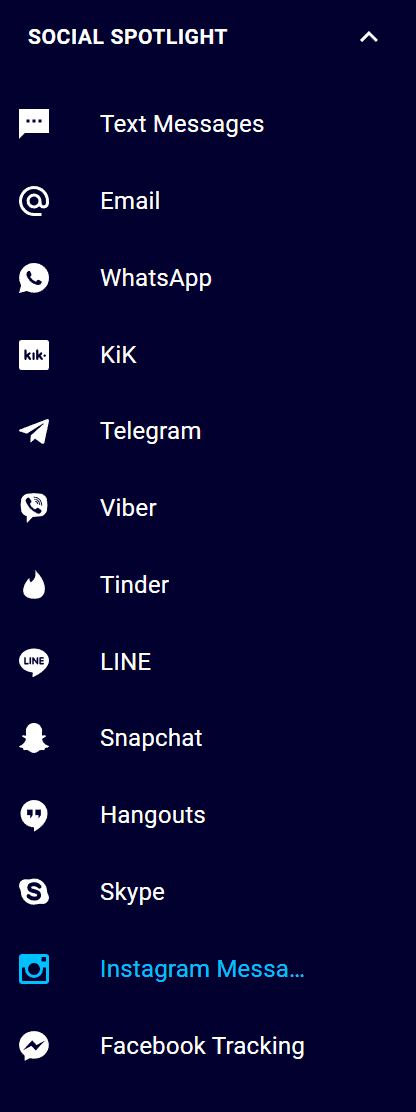
You can now see every message your child receives on any social platform, texts, skype, etc. So if anybody sends the following texts to your child:
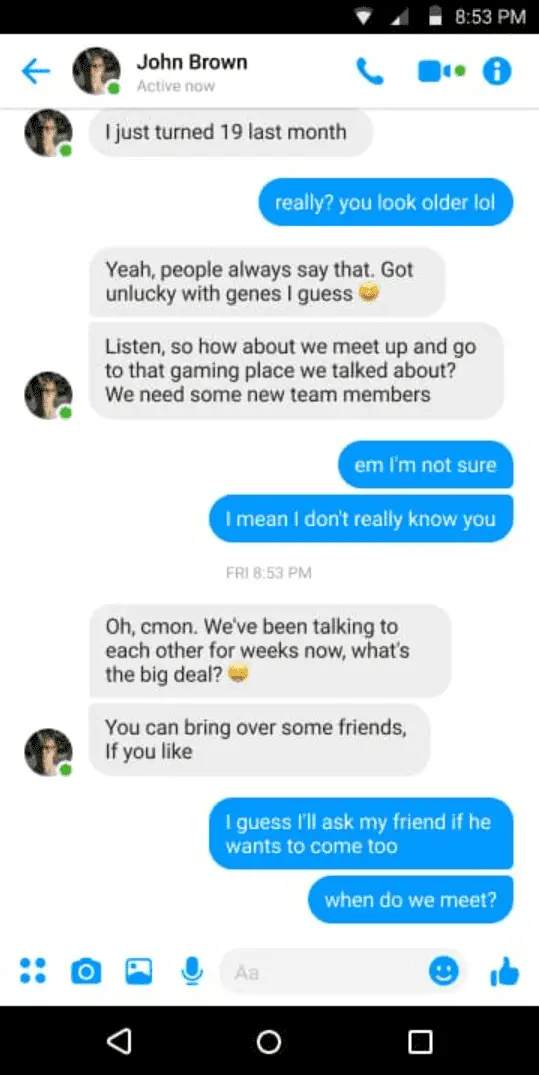
You can now instantly hire the best hitman available on the black market (as the last Netflix documentary on the subject said). Or, if you can control your urges (which we suggest), you can directly contact the police!
And you can scroll through the messages like this:
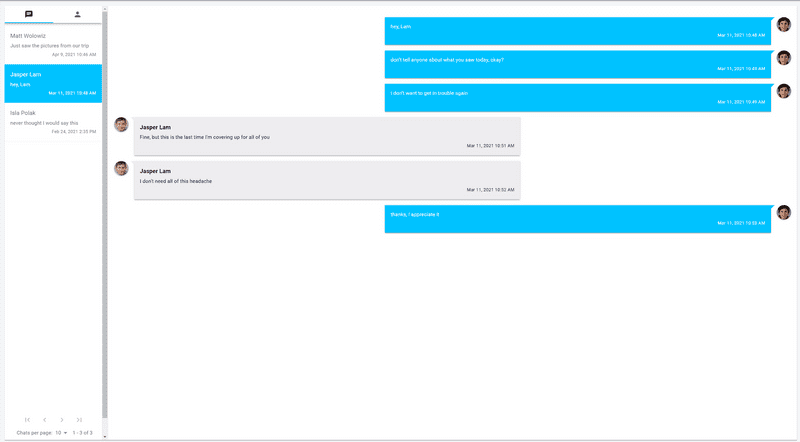
And you might be wondering: But how do I know with whom are they talking? Well, apparently, these guys thought of everything:
2) Call recorder
Besides the fact that you see with whom they are talking, you know the duration, if someone insists too much, etc. And you can obviously check what types of messages those who have red flags are sending besides calls.

3) See what content they consume
Obviously, if they get messages with inappropriate content from their friends, you're gonna catch that.
But beyond that, you can also see their browsing history, even on youtube.
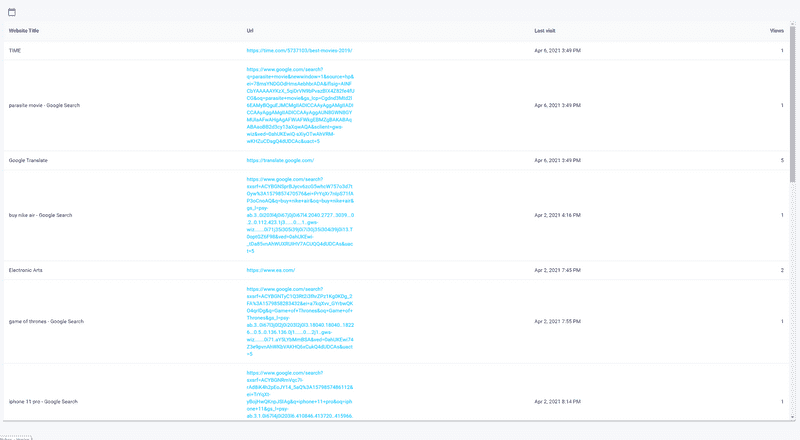
What's even better is that if the case requires it, you can also block trash websites or apps without them knowing. It will appear as a problem from their website or the app.
4) Geolocation
Now that you know with whom they are meeting, thanks to the message tracker and call tracker, you can also see their deeper influences on them. You can see in what type of places they hang out.
Even more safety measures are available.
If you want to go more in-depth, we suggest you click the "TRY NOW" button on the eyezy.com website, where you can see how it would be like.
Is this ETHICAL? Is this the right thing?
First of all, let's see what we generally do as parents. Since they are babies, we're playing a constant game between giving them the freedom to develop and intervening when things go south. When things get a bit over their capabilities, when it gets slightly dangerous, we jump in to save them.
We taught them how to walk, and when they got near edges, we intervened. It's our responsibility to assess where they're at and how we're getting them to the next level of independence.
But isn't this too much? They are kinda grown up now, and we're invading their privacy with this...
So should we:
1) Allow them maximum freedom at the expense of all the new dangers of the world?
OR
2) We use all means available to us to make sure they are safe, even if we're crossing our own promoted position of growth towards independence?
The risk-reward ratio is extremely off in this case. And these dangers, as seen above, are very, very real. In our opinion, it's similar to watching them learn how to ride a bike.
However, when learning to ride a bike, we all know that it is essential TO RESTRAIN from pointing out every single mistake when they ask: How did I do, mommy? The answer in that situation would be: You did good, but maybe you can watch more for initial balance.
We believe this is highly beneficial for their safety, and it's the only weapon we have access to as parents in response to this new world of threats.
That's why most of our colleagues have implemented this successfully, but it's extremely important to be responsible as a parent. Watch from a distance for red flags, but give them space to make mistakes and learn. Don't jump on every tiny detail of their privacy as some of our colleagues did initially. Some of them implemented it and said that it's not for them, which is a personal decision we all have to make.
However, the conclusion is that it's the real protection we have in this new world. We need to decide for ourselves if we're ok with the risks or if we want to assure maximum protection, even if it will make our lives a bit more complicated.
Go and decide for yourself what's best for you!
Share this with your friends
Related Articles
Here are some articles you might be interested in:
What questions do you have?
I make sure to answer them as soon as possible!
- Copyright © 2020 YOU are safe online.
- All Rights Reserved.
